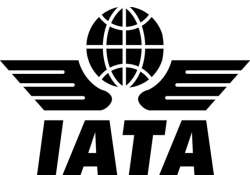Aviation sector value not well understood by governments: global airlines body
New Delhi: Governments across the world have gained “substantially” from the airline industry, earning an estimated $121 billion in tax revenues this year alone, but the aviation sector's importance is “not well understood” by many

New Delhi: Governments across the world have gained “substantially” from the airline industry, earning an estimated $121 billion in tax revenues this year alone, but the aviation sector's importance is “not well understood” by many of them, the International Air Transport Association has said.
This has forced global airlines' body IATA to appeal to the governments, including the Narendra Modi-led dispensation in India, to slash taxes, restrain private airport operators from levying high charges and relax “excessive” regulations in the aviation industry to maximise its full potential to generate economic growth.
The governments have “gained substantially from the good performance of the airline industry. Airlines and their customers generated an estimated $121 billion in tax revenues this year”, IATA's chief economist, Brian Pearce, said at the just-concluded World Air Transport Summit in Doha.
Total global tax revenue generated was almost half of the gross value added by the industry paid to governments in payroll, social security, corporate and product taxes.
The value of international trade shipped by air this year has reached $6.8 trillion, while people flying this year including tourists spent an estimated $621 billion, Mr Pearce told PTI.
“But in many countries the value of aviation for governments and the wider economy is not well understood. The commercial activities of the industry remain highly constrained by bilateral and other regulations.”
IATA's director general and chief executive Tony Tyler had earlier said his “wish list” for the new Indian government included stopping “political interference” in the industry, reducing excessive regulations, slashing of state taxes on jet fuel and building the long-awaited Navi Mumbai airport.
He had criticised the high taxes and airport charges in India and indicated his opposition to the privatisation of airports.
“Governments are basically selling off airport franchises at hugely valued prices and... often this is because private companies see huge opportunities to take advantage of the poor regulations and overcharge the airlines and their passengers,” the IATA chief had said in Doha.
Maintaining that sometimes private airport developers pay “huge amounts of royalty to the government” as in India, he said, “The money wholly comes from the airlines and the passengers and this is something that we are very concerned about. The regulatory regime is not strong enough to control the charges levied by the airports. That's the case in India.”
Mr Tyler said he would raise these and other issues when he visits India, adding, “We wish the new government every success in maximising the potential of the Indian aviation industry.”
In his inaugural speech at the IATA annual general meeting too, he said, “In Asia and Latin America, governments are aggressively pursuing public-private partnerships for airport development. We have seen enough failures of poorly structured initiatives to be deeply concerned about the consequences.”
Major airports like Delhi, Mumbai, Hyderabad and Bangalore have already been developed through the PPP model, while those at Kolkata, Chennai and some other places are in the process of being privatised.
This has forced global airlines' body IATA to appeal to the governments, including the Narendra Modi-led dispensation in India, to slash taxes, restrain private airport operators from levying high charges and relax “excessive” regulations in the aviation industry to maximise its full potential to generate economic growth.
The governments have “gained substantially from the good performance of the airline industry. Airlines and their customers generated an estimated $121 billion in tax revenues this year”, IATA's chief economist, Brian Pearce, said at the just-concluded World Air Transport Summit in Doha.
Total global tax revenue generated was almost half of the gross value added by the industry paid to governments in payroll, social security, corporate and product taxes.
The value of international trade shipped by air this year has reached $6.8 trillion, while people flying this year including tourists spent an estimated $621 billion, Mr Pearce told PTI.
“But in many countries the value of aviation for governments and the wider economy is not well understood. The commercial activities of the industry remain highly constrained by bilateral and other regulations.”
IATA's director general and chief executive Tony Tyler had earlier said his “wish list” for the new Indian government included stopping “political interference” in the industry, reducing excessive regulations, slashing of state taxes on jet fuel and building the long-awaited Navi Mumbai airport.
He had criticised the high taxes and airport charges in India and indicated his opposition to the privatisation of airports.
“Governments are basically selling off airport franchises at hugely valued prices and... often this is because private companies see huge opportunities to take advantage of the poor regulations and overcharge the airlines and their passengers,” the IATA chief had said in Doha.
Maintaining that sometimes private airport developers pay “huge amounts of royalty to the government” as in India, he said, “The money wholly comes from the airlines and the passengers and this is something that we are very concerned about. The regulatory regime is not strong enough to control the charges levied by the airports. That's the case in India.”
Mr Tyler said he would raise these and other issues when he visits India, adding, “We wish the new government every success in maximising the potential of the Indian aviation industry.”
In his inaugural speech at the IATA annual general meeting too, he said, “In Asia and Latin America, governments are aggressively pursuing public-private partnerships for airport development. We have seen enough failures of poorly structured initiatives to be deeply concerned about the consequences.”
Major airports like Delhi, Mumbai, Hyderabad and Bangalore have already been developed through the PPP model, while those at Kolkata, Chennai and some other places are in the process of being privatised.